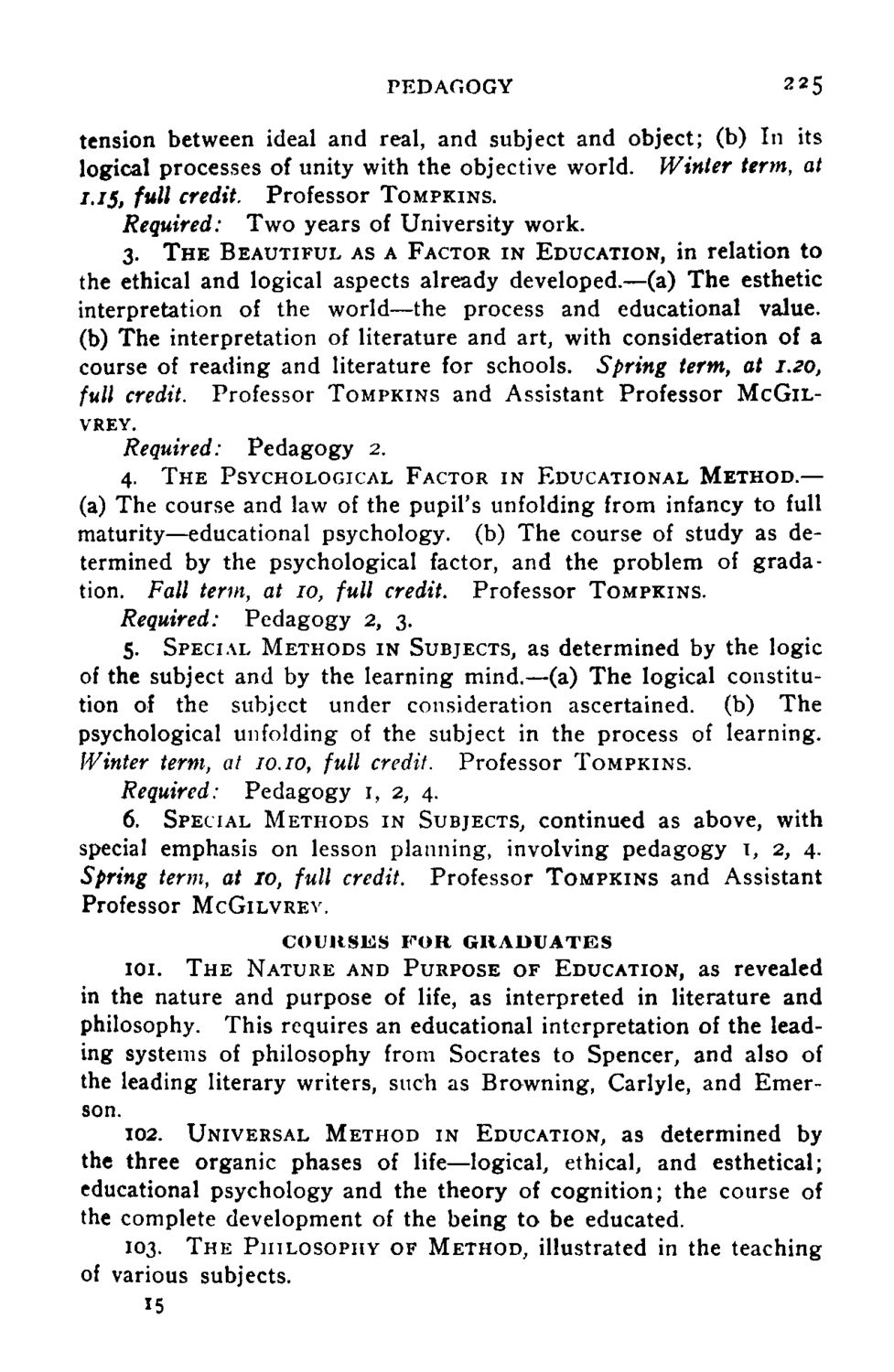| |
| |
Caption: Course Catalog - 1897-1898
This is a reduced-resolution page image for fast online browsing.

EXTRACTED TEXT FROM PAGE:
PEDAGOGY 2 25 tension between ideal and real, and subject and object; (b) In its logical processes of unity with the objective world. Wittier term, at 1.IS, full credit. Professor TOMPKINS. Required: Two years of University work. 3. THE BEAUTIFUL AS A FACTOR IN EDUCATION, in relation to the ethical and logical aspects already developed.—(a) The esthetic interpretation of the world—the process and educational value, (b) The interpretation of literature and art, with consideration of a course of reading and literature for schools. Spring term, at i.zo, full credit. Professor TOMPKINS and Assistant Professor MCGILVREY. Required: Pedagogy 2. 4. T H E PSYCHOLOGICAL FACTOR IN EDUCATIONAL METHOD.— (a) The course and law of the pupil's unfolding from infancy to full maturity—educational psychology, (b) The course of study as determined by the psychological factor, and the problem of gradation. Fall term, at 10, full credit. Professor TOMPKINS. Required: Pedagogy 2, 3. 5. SPECIAL METHODS IN SUBJECTS, as determined by the logic of the subject and by the learning mind.—(a) The logical constitution of the subject under consideration ascertained, (b) The psychological unfolding of the subject in the process of learning. Winter term, at 10.10, full credit. Professor TOMPKINS. Required: Pedagogy 1, 2, 4. 6. SPECIAL METHODS IN SUBJECTS, continued as above, with special emphasis on lesson planning, involving pedagogy 1, 2, 4. Spring term, at 10, full credit. Professor TOMPKINS and Assistant Professor MCGILVREV. COURSKS FOR GRADUATES 101. T H E NATURE AND PURPOSE O F EDUCATION, as revealed in the nature and purpose of life, as interpreted in literature and philosophy. This requires an educational interpretation of the leading systems of philosophy from Socrates to Spencer, and also of the leading literary writers, such as Browning, Carlyle, and Emerson. 102. UNIVERSAL M E T H O D I N EDUCATION, as determined by the three organic phases of life—logical, ethical, and esthetical; educational psychology and the theory of cognition; the course of the complete development of the being t o be educated. 103. T H E PHILOSOPHY OF METHOD, illustrated in the teaching of various subjects. 15
| |